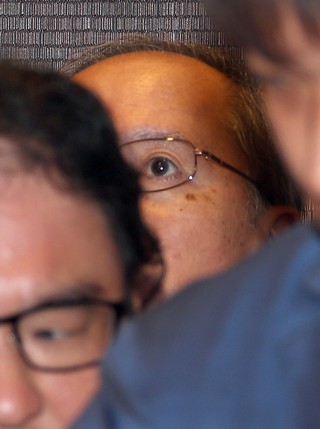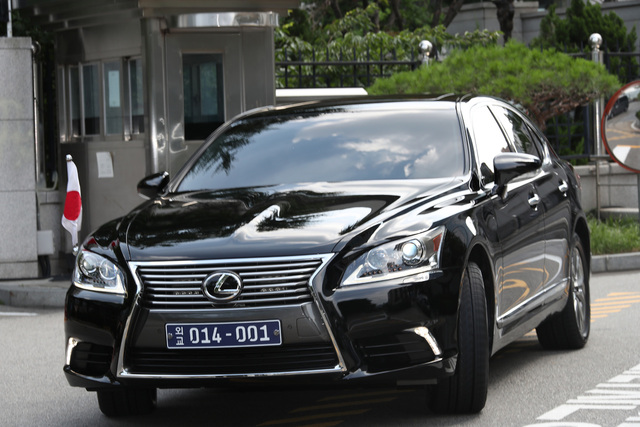Posted on : Jul.2,2019 16:34 KST
 |
|
Japanese Ambassador to South Korea Yasumasa Nagamine at the South Korean Ministry of Foreign Affairs in Seoul on July 1. (Yonhap News)
|
Foreign minister says retaliatory measures contradict G20 summit declaration
 |
|
Japanese Ambassador to South Korea Yasumasa Nagamine at the South Korean Ministry of Foreign Affairs in Seoul on July 1. (Yonhap News)
|
First Vice Foreign Minister Cho Se-young summoned Japanese Ambassador to South Korea Yasumasa Nagamine on July 1 to protest Japan’s economic retaliation for a South Korean Supreme Court ruling ordering the payment of damages to Korean survivors of forced labor conscription and demand the withdrawal of related measures.
Summoning Nagamine to the Ministry of Foreign Affairs (MOFA) building in Seoul’s Doryeom neighborhood at around 2:25 pm that day, Cho expressed profound concerns and dismay over the measures’ potential impact on related industries and relations between the two sides, the ministry said. Cho also urged the withdrawal of the measures as being directly in conflict with the message of a declaration adopted at the G20 summit in Osaka in late June. In the G20 summit declaration, the leaders of G20 countries stated that they “strive to realize a free, fair, non-discriminatory, transparent, predictable and stable trade and investment environment, and to keep our markets open.”
The same morning, the Japanese Ministry of Economy, Trade and Industry (METI) announced the amendment of regulations on exports to South Korea to intensify regulations on exports in three areas necessary for manufacturing, including semiconductors for smartphones and televisions. The ministry also made it clear that the measures were meant as retaliation amid the conflict over the conscription issue, stating that the “relationship of trust [between the two sides] has been markedly damaged.”
 |
|
Nagamine leaves the South Korean Ministry of Foreign Affairs after meeting with South Korean Vice Foreign Minister Cho Se-young on July 1. (Yonhap News)
|
The South Korean government said it plans to more closely analyze the details of the Japanese measures and the potential impact on South Korea’s economy while developing a response plan in cooperation with South Korean businesses in the relevant areas.
“It’s been known that Japan has been examining economic retaliation measures since last year, but it looks as though they’ve rushed an announcement to increase pressure on South Korea ahead of the House of Councillors election on July 21 and the cash conversion of Japanese companies’ assets seized by South Korean survivors of forced labor conscription, who are expected to liquidate the assets sometime around early August,” said Yang Gi-ho, a professor at Sungkonghoe University.
By Park Min-hee, staff reporter
Please direct comments or questions to [english@hani.co.kr]










